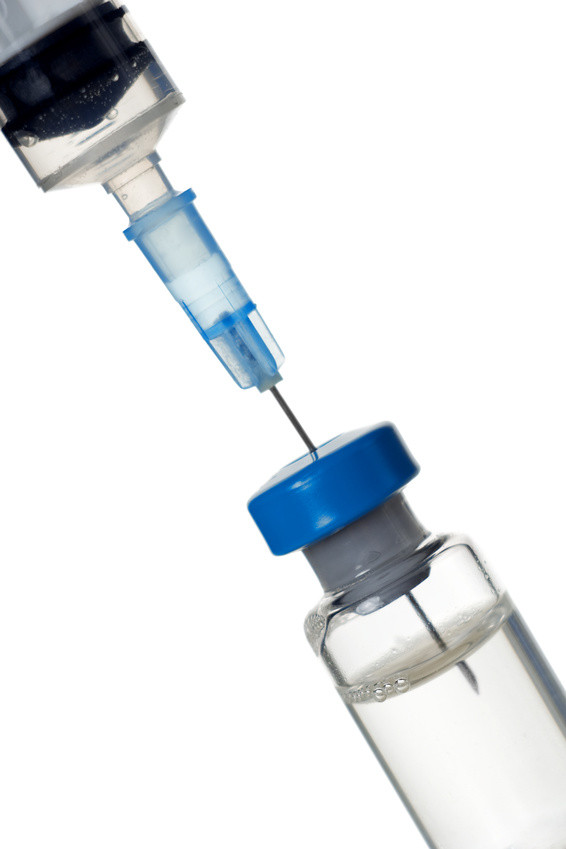
Scientists have developed a new HPV (human papilloma virus) vaccine which protects against nine types of the virus — seven of which cause most cases of cervical cancer. The new vaccine offers significantly greater protection than the current vaccine, which protects against only two cancer causing types of HPV.
A pivotal international clinical trial compared the safety and efficacy of the new vaccine, Gardasil 9, with the current vaccine, Gardasil, in more than 14,200 women aged between 16 and 26 years old. The findings indicate that if uninfected populations are vaccinated with Gardasil 9, approximately 90 per cent of all cervical cancers worldwide could be prevented.
Published in the New England Journal of Medicine, the study found that, among uninfected women, Gardasil 9 was 97 per cent effective at preventing high-grade cervical, vulvar and vaginal disease caused by HPV 31, 33, 45, 52 and 58, and was equally effective as the current Gardasil vaccine in preventing diseases caused by HPV 6, 11, 16 and 18.
Professor Jack Cuzick of Queen Mary University of London, who co-authored the report and participated in the design and analysis of the study, and served on the Trial Advisory Board, comments: “This is a significant achievement. The new vaccine, Gardasil 9, is not only safe but will offer greatly improved protection against cervical and other cancers. Eventually this will mean less screening is needed, as women will have greater protection from the outset.
“Gardasil 9 offers the potential to increase overall cervical cancer prevention from 70 to 90 per cent, nearly eliminating this cancer among vaccinated women. However, it’s crucial to remember that vaccination must be done before exposure to the virus. Our focus for prevention must be on girls aged 12-13, as the current UK vaccine programme is doing, but the vaccine may also be appropriate for women 25-45 as part of a screening appointment.”
Until late last year, there were two available vaccines to protect against HPV related disease (Cervarix and Gardasil). The UK currently uses Gardasil which protects against four HPV types and offers about 70 per cent protection against cervical cancer, and also significantly reduces the risk of other types of cancer and genital warts.
However, researchers have been trying to find methods to completely eliminate cervical cancer and other HPV related disease and by adding five more cancer related HPV types. The development of the new Gardasil 9 vaccine makes an important step in that direction.
HPV is the most common sexually transmitted virus. Many people infected with HPV clear it from their systems with no lasting health concerns and some types of the virus are low risk, causing warts or verrucas. However, other types are high risk, causing cervical cancer (and less commonly vulvar, vaginal, penile, anal, and throat cancers). Almost all cases of cervical cancer occur as a result of infection with high risk types of HPV.
Cervical cancer is still the fourth most common cancer in women, with over 500,000 cases and 250,000 deaths per year worldwide. In the UK around 3,000 women a year are diagnosed with cervical cancer and in 2011 there were around 970 deaths.
In the UK, all girls aged 12 to 13 are offered HPV vaccination as part of the NHS childhood vaccination programme.
Professor Jack Cuzick concludes: “Following these important findings, this vaccine has been licenced in the USA and approval is currently being sought in the UK and other countries. It is encouraging that the Joint committee on Vaccines and Immunisation is reviewing Gardasil 9 in light of this new evidence.”
This clinical trial was funded by Merck.
Story Source:
The above story is based on materials provided by Queen Mary, University of London. Note: Materials may be edited for content and length.
Journal Reference:
- Elmar A. Joura, Anna R. Giuliano, Ole-Erik Iversen, Celine Bouchard, Constance Mao, Jesper Mehlsen, Edson D. Moreira, Yuen Ngan, Lone Kjeld Petersen, Eduardo Lazcano-Ponce, Punnee Pitisuttithum, Jaime Alberto Restrepo, Gavin Stuart, Linn Woelber, Yuh Cheng Yang, Jack Cuzick, Suzanne M. Garland, Warner Huh, Susanne K. Kjaer, Oliver M. Bautista, Ivan S.F. Chan, Joshua Chen, Richard Gesser, Erin Moeller, Michael Ritter, Scott Vuocolo, Alain Luxembourg. A 9-Valent HPV Vaccine against Infection and Intraepithelial Neoplasia in Women. New England Journal of Medicine, 2015; 372 (8): 711 DOI: 10.1056/NEJMoa1405044
